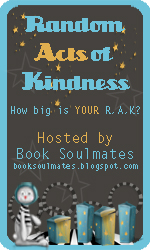Hello again and welcome to day four of our
"Stand Up Against Abuse" Week. What
Jessica (Confessions of a Bookaholic) says in the banner above is true.
Relationships Shouldn't Hurt. It's been a great week talking about such a sensitive subject that needs more attention. I hope that through the last four days we were able to make a difference in even just one persons life. Remember, this is only the beginning of the discussion. Do the most important thing of all...
JUST KEEP TALKING! Enjoy the second to the last day and remember the important information you'll find in today's post. Thanks.
Resources & Signs of Abuse from author Holly Cupala
What are the resources for teens that you would recommend? (websites, phone numbers, groups, etc.) -
One thing I learned that really struck me as I researched homelessness and relationship abuse for
DON’T BREATHE A WORD was that wanting to leave bad habits is not a motivation to quit—finding purpose and meaning is. One better choice can make the difference between a hopeful outcome and a grim one.
There are some wonderful organizations, both locally and nationally, to help teens in abusive or dangerous situations:
The National Runaway Hotline, 1-800-RUNAWAY, is dedicated to helping teens stay safe and off the streets.
LoveisRespect.org is such a great site with info on relationship warning signs and getting help, and they launched a dating abuse hotline: 1-866-331-9474 or text “loveis” to 77054.
Glamour Magazine launched the Tell Somebody campaign, including 10 Surprising Warning Signs You’re Dating an Abusive Guy.
What do you feel are the top warning signs that a person may be abusive?
Some of the warning signs? When you feel bad or sad or small or ashamed whenever you’re around that person. When it’s all about them. When they aren’t interested in what is important to you. When they blow off your concerns about their behavior. So many more, but it can be so hard to recognize when you’re in the middle of it.
Abusive relationships aren’t just about physical abuse—abuse can be verbal, emotional, and psychological. If you sense you are in a relationship that hurts you or demeans you, listen to that inner voice. Tell a friend, get help. An abuser’s words have power, and so do yours.
Resources & Signs of Abuse from author Angela Carling
Hi there, my name is Angela Carling and I am the author of Unbreakable Love(a tender love story) and Shackled(a powerful story of love and control). I dedicated Shackled to my sister who survived an abusive relationship. There is a post on my blog if you want to know more about that
http://www.angelacarling.blogspot.com/ Today the lovely lady that hosts this blog has asked me to provide information that I might have found when researching Shackled. Before I pass on the actual websites and phone number I need to warn anyone who might use the information below to get help- that they should avoid using any computer that your abuser might have access to because the abuser can check your viewing history putting you in further danger. These websites recommended making phone calls or doing research on a friend or families computer, maybe even going down to the library to use their computers, so please be careful. That is why I have listed correlating phone numbers with each website below (if I could find one). Without anymore blabbing from me, here are several resources to help you learn more or get out of an abusive relationship. All my love and the best of luck to each of you.
This was the most comprehensive website I found. It also gives hotline numbers for men, in addition to women. I also liked that it had a nationwide map(USA) of all the shelters available.
http://www.helpguide.org/mental/domestic_violence_abuse_help_treatment_prevention.htm#help
This was an excellent catch all, easy to remember hotline 1-800-799-SAFE. Below is the correlating website.
http://www.thehotline.org/
This site provides legal help to abuse victims. The phone number is 1-800-427-1460.
http://www.laawstl.org/
This website provides guidance and assistance all over the world and for almost all languages. The toll free number is 1-800-799-7233 and it is available 24hours a day 365 days a year!
http://www.kismetwtg.com/index.php?option=com_content&view=article&id=11&Itemid=117
This site is awesome to help you find an immediate, emergency shelter and protection, anywhere in the U.S.
http://www.womenshelters.org/
My focus today is on Shackled and even more specific, the why behind Shackled. While this saucy little story definitely addresses the patterns and traits of abuse, it does not wallow in the darkness of it. Instead, I wrote the book hoping to show my readers how to punctuate the problem before it gets out of control. Let me explain. I have a psychology degree and in my field of study, we learned goofy words like PUNCTUATE. Most negative behaviors are actually part of patterns that go round and round until they destroy us. Just like a period marks the end of a sentence, when we punctuate a problem or bad behavior, we mark it mid pattern and stop the destructive cycle. See all that money on college wasn’t wasted after all. In Shackled, we walk in Lucy’s shoes, breath Lucy’s breaths and hear Lucy’s every thought. While Lucy’s experience is fascinating to read about, it also teaches us the critical warning signs of abuse. While I hope you read Shackled (it has a very cool, surprising ending), I also want to list here, the five most important signs of abuse to watch for. If you are in a relationship and you see any of these signs, it may be time to look seriously at your relationship and decide whether it is healthy. In other words, punctuate the pattern. If it is not a healthy relationship, get out!!!! Abusers can’t hurt us if we don’t let them. In fact, ironically, they are powerless without you as a victim, so don’t fuel their sickness. You are powerful and precious, and deserve to feel safe and respected. Oh yeah, warning signs. Here they are.
1. Abusers typically come on very strong at the beginning. They can be charming and often tell you they love you earlier than you would expect. They “
sweep you off your feet” and ask for a commitment early in the relationship.
2.
Very intrusive or controlling-an abusive person must know where you are all the time. They also want complete control even over simple things like what you wear or how you spend your money.
3.
Won’t take responsibility. It is always someone else’s fault that an abuser is angry or upset. Abusers are famous for turning it around on their victims and making it “their fault”
4.
They isolate you from others, particularly family and friends, often insisting you spend all your time with them. They are very jealous and constantly question you. They call is showering you with attention. This gives them more control and keeps you subdued.
5. Abusers often use
intimidating body language and/or some form of belittlement. This may include anything from rolling their eyes when you talk to actually calling you stupid or hitting you. Anything to make you feel lower than them. This can happen in public or in private.
I hope this was helpful. I hope everyone reading this can find the sweet gift of a healthy relationship in your lives. Thanks for your time and I wish you all the best!
Resources & Signs of Abuse from author Jennifer Shaw Wolf
The answers to these questions are also from Community Services Coordinator, Michelle Dixon-Wall, at SafePlace.
What are the resources for teens that you would recommend? (websites, phone numbers, groups, etc.)
http://www.loveisrespect.org/
http://www.facebook.com/LoveIsNotAbuse
http://www.thatsnotcool.com/
What do you feel are the top 5 warning signs that a person may be abusive?
1. Extreme jealousy, possessiveness- At the beginning of a relationship an abusive person will always say that jealousy is a sign of love. Jealousy has nothing to do with love; it’s a sign of possessiveness and lack of trust. An abusive person will question you about who you talk to, accuse you of flirting / cheating or be jealous of time you spend with family, friends, or children. As the jealousy progresses, an abusive person may call you frequently during the day or drop by unexpectedly. An abusive person may refuse to let you work or go to school for fear they will meet someone else, or even do strange behavior such as checking the car mileage or asking friends to watch you.
2. Controlling behavior- At first, an abusive person will say this behavior results from concern about the your safety, your need to use your time well, or to make good decisions, etc. An abusive person will be angry if you are “late” coming back from the store or an appointment. An abusive person will question you closely about where you went or who you talked to. As this behavior gets worse, the abusive person may not let you make personal decisions about the house, clothing, or going to church. An abusive person may keep all the money or even make you ask permission to leave the house or room.
3. Quick involvement- Many people who have experienced abuse knew their abuser for a short time before they entered a relationship with them. An abusive person comes on like a whirlwind, claiming, “You’re the only person I could ever talk to,” or “I’ve never felt loved like this by anyone.” An abusive person will pressure you to commit to the relationship in such a way that later you feel guilty if you want to slow down the involvement or break it off completely.
4. Blames others for their problems and/or feelings- An abusive person will blame you for almost anything that goes wrong. The abusive person will tell you, “You make me mad” or “You’re hurting me by not doing what I want you to do,” or “I can’t help being angry.” It is really the abusive person who makes the decision about what they think or feel but they will use those feelings to manipulate others. Less obvious blaming statements are claims that “You make me happy,” or “You control how I feel.” An abusive person is easily insulted and claims that their feelings are “hurt” when really they are very mad. An abusive person will “rant and rave” about the injustice of things that have happened – things that are really just part of living such as being asked to work overtime, getting a traffic ticket, being told some behavior is annoying or being asked to help with chores.
5. History of violence- (criminal or not) This person may say they have abused people in the past but that the person made them do it. You may hear from relatives or ex-spouses/partners/dates that this person is abusive. If someone has been abusive in the past, they have the potential to be abusive again (unless they have done intense interpersonal work with a professional around their abusive behavior.) Abuse can appear much later than the warning signs. Situational circumstances do not make a person abusive or prevent a person from acting abusively (i.e., they are sober now, they were unemployed then, etc.) Physical / emotional violence in general is a warning regardless of the relationship with the person on the receiving end of the abuse- being violent with animals, children, other people, neighbors, gang related violence, or sexual assault. Emotional violence can also include racial slurs, sexist remarks, homophobic comments- blame or hate for those different than themselves.

We can't thank Holly, Angela & Jennifer enough for taking the time out of their busy schedules to talk about something we should all be talking about more. Abuse isn't going to simply go away if we don't walk about it. Talking about abuse is something we need to do to empower those with a way to fight against it. Talking is the first step. This week has been all about the first step. Lets all continue to take further steps in prevention together.
Remember to check out THIS PAGE to sign up to win a copy of the three books mentioned during "Stand Up Against Abuse" week. Help spread the word about the links and phone numbers listed on that page AND this page as well.







































